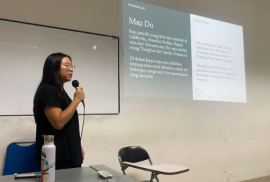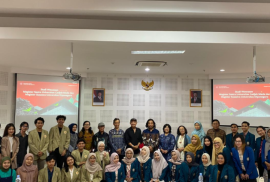Yogyakarta, 24 November 2025 — The Faculty of Cultural Sciences (FIB) of Universitas Gadjah Mada has once again recorded an outstanding achievement. Alna Hanifah, a student of the Indonesian Language and Literature Study Program, won 2nd Place in the monologue competition held at Universitas Indonesia during the National & ASEAN Student Arts Festival.
This accomplishment demonstrates that FIB UGM students excel not only academically but also in the performing arts. Through an artistically and narratively strong monologue performance, Alna captivated the judges and brought pride to UGM at both national and regional levels. This prestigious event also serves as a platform for students to develop creativity, expand networks, and deepen cross-cultural understanding.
The participation and success of FIB UGM students in this competition align with the faculty’s commitment to advancing quality education, as reflected in the principles of the SDGs. By supporting artistic activities, the faculty aims to foster a learning environment that encourages character development, creativity, and cultural competence. Moreover, UGM’s involvement in a festival that brings together universities from Indonesia and ASEAN countries reflects the spirit of global partnership, as the competition provides a space for collaboration and cultural exchange that strengthens international relationships.
[Public Relations of FIB UGM, Alma Syahwalani]






